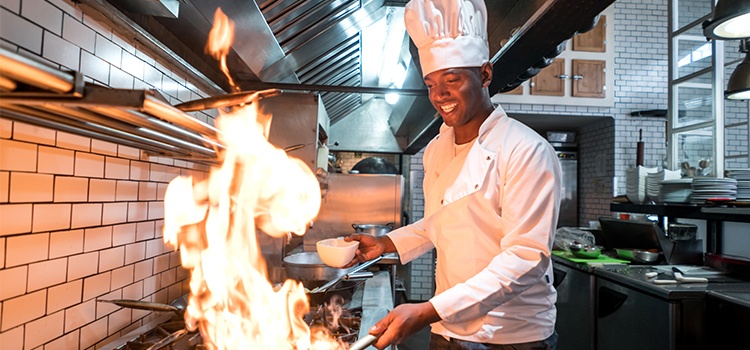Should You Get a Bachelor's Degree in Culinary Arts?
Are you ready to pursue a culinary arts degree program?

You've heard it all: bachelor's degree holders earn more money, a 4-year degree gives you a broader education, employers prefer bachelor's degrees, and so on.
But is a bachelor degree in culinary arts actually going to confer real-life advantages that you wouldn't get from an associate's degree or diploma?
Some might argue that if you have the right job experience, whether you have one, two, or four years of education shouldn't make much of a difference to your success in a culinary career.
There are other factors affecting your educational decisions, too, such as the financial resources you're able to devote to paying for school, how quickly you need to enter the workforce and how much time you have to spend on classes. In the end, though, choosing a certificate, an associate's degree or a bachelor's degree in culinary arts depends on what you ultimately hope to get out of your education and where your career goals lie.
Who Should Consider a Bachelor's Degree in Culinary Arts?
It might be hard to imagine why paying for four years of education is a good idea when you could be out of school and on the job in two years or fewer. But generally speaking, you can earn twice as much money with a bachelor's degree than just a high school diploma, and that's the case across the career spectrum. There are other reasons, too, to consider a bachelor degree in culinary arts:
- Go beyond the basics. Bachelor's degrees always include liberal arts and other general education courses in addition to your culinary curriculum. Besides enjoying the intellectual challenge of a well-rounded education, you'll gain skills in other areas—knowledge that might come in handy if you ever need to look for work outside of the culinary industry.
- Prepare yourself for higher education. With a bachelor's degree, you'll have the minimum qualification to enter a master's degree program in culinary arts—a must if your plan is to teach at a culinary school. Nutritionists, dietitians, food scientists and many restaurant owners also hold master's degrees.
- Get management training. A bachelor's degree will give you the same hands-on training that you'll get in a diploma or associate's program, but you'll also have the option to study finance, business and management in some depth. Expertise in these areas will make it easier to move through the ranks and attain managerial roles.
Knowing your own needs and aspirations is paramount to making the right educational decision. Having a clear idea of what a bachelor degree in culinary arts offers, compared to a diploma or associate's degree, will help make that decision a little easier.
FIND A CULINARY SCHOOL TODAY
Tell us a little about yourself and we'll connect you with schools that offer culinary arts programs.
